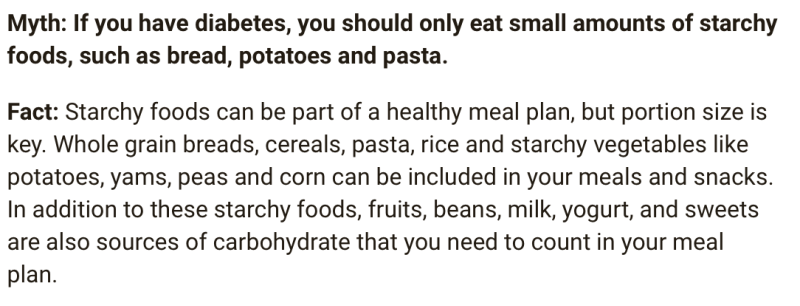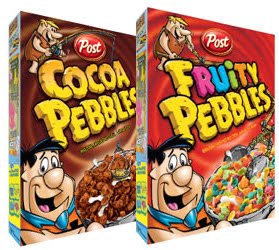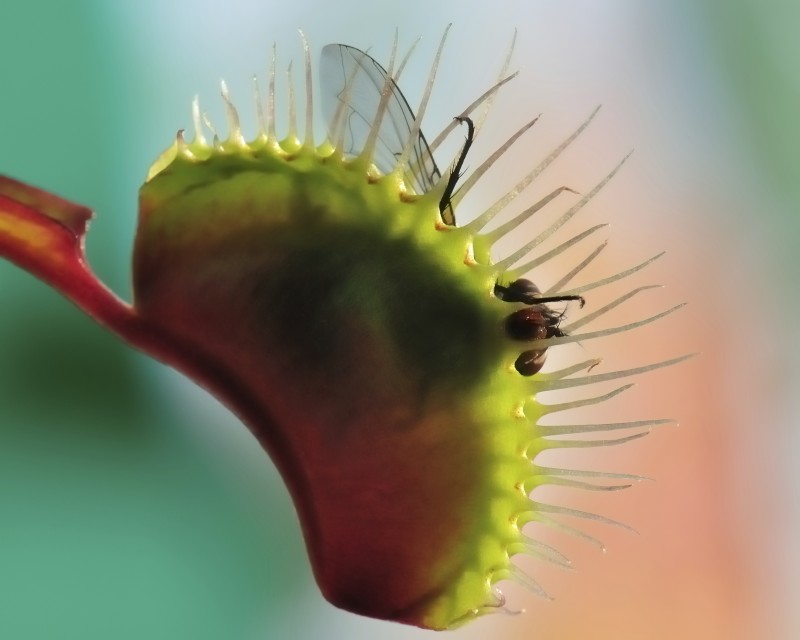What if I told you there was a drug that was called “Disaster”. This drug was promoted by many media outlets, was endorsed by medical professionals, and was supposed to be completely safe in “reasonable doses”. Adults and children largely consumed “disaster” as a recreational drug, on a daily basis. It changed hormonal signaling, caused major inflammation, and eventually, death. Would you consume it?
Many people today are addicted to this drug. We’re flooded with advertisements and endorsements from our sports heroes, telling us how great this drug is. It tastes delicious, is convenient, cheap, adds no nutritional value, and is completely unsustainable. It takes tons of fossil fuels to produce, ship, package, and market to you. It can sustain you, but gives you nothing.
What I’m talking about is industrially produced, highly processed, hyper-palatable food. These foods flood our markets, taking over the center of our grocery stores. We’re told they’re fortified with all the vitamins and minerals we need to lead healthy lives. We’re told it’s completely safe to consume. It resembles nothing close to what we are biologically designed to eat. In fact, instead of providing us with nutrition, it can actually cause a slow, painful death. What do you think of it now? Do you still feel compelled to eat it?
According to the CDC, heart disease and cancer are the top two causes of deaths , with diabetes coming in at #7. Nearly 30 million Americans (or 9.3% of the population) have diabetes, with an additional 1.4 million diagnosed every year. The rates of prediabetes are soaring. The death rate is likely much higher than reported, because diabetes is not always listed as the underlying cause of death. Heart attacks, stroke, CVD, hypertension, hypoglycemia, and kidney disease can be attributed to diabetes, and the total cost of diabetes is over $245 billion.
Yet, the messages we’re getting from organizations like the American Diabetes Association are this:

No wonder everyone is sick and confused.
As a future dietitian, I’m told to educate my diabetic patients on “everything in moderation” and “carb counting”. Carb counting goes like this: you can eat any carb, just know what equals 15 grams. So, a piece of fruit = 1 serving, just like a tablespoon of jelly, a 2 inch square of cake, ½ cup of orange juice, or a 1/3 cup of pasta. (By the way, who eats just 1/3 cup of pasta or 2 inch square of cake?) Anyway, we’re told that these foods are all equal. Here is an example from the Academy of Nutrition and Dietetics of what they recommend I tell diabetics to eat for breakfast:

I’m really not kidding. This breakfast is what is on nearly every diabetes education piece out there. Hmm, so let’s end a fast (night) with a meal incredibly high in carbohydrate with no healthy fats (margarine, what is this, 1985?) and very little protein in here to slow down the rate of metabolism. I’d say this breakfast would INDUCE diabetes. The truth is, type 2 diabetes can largely be avoided with a proper diet.
If you’re on this site, it’s likely you are skeptical about mainstream nutrition and are seeking alternatives in order to save yourself. If you haven’t yet tried a 30-day paleo challenge, and are still in the trap of eating a large amount of your calories from processed food, ask yourself these questions:
What is it doing for me?
How do I feel after I eat it?
Is it really saving me money?
Do I actually enjoy it?
What is this food actually giving to you? Nutrition? Calories? A feeling of pleasure?
From birth, we have been subjected to massive brainwashing telling us that eating these foods are delicious, easy, inexpensive, and even fun. Who can recall cereal commercials with cartoon characters telling us how exciting our day will be with X brand cereal “as part of a complete breakfast” (usually shown with a glass of orange juice, skim milk, and a banana). We’re told that all foods are fine “in moderation”. That “nothing is bad”. Why should we not believe them?

Walmart sells a 20.5oz box of fruity pebbles for $3.68. A 24oz box of Corn Flakes is the same price. That’s only $0.17 per ounce. That’s pretty damn cheap. However, when I searched for a dozen eggs on their site, I found a dozen for $1.67, which is $0.14 per egg. When you compare the nutrition in an egg to an ounce of fruity pebbles, guess which one wins.
Truths:
Eating processed foods doesn’t relieve hunger, it creates it.
Humans are animals, and industrially-processed foods are not our natural diet.
Processed foods are hyper-palatable and are actually poison to our bodies.
The human body is an animal being that is programmed to perform optimally on a certain diet. Highly processed foods are not natural, and can actually alter our microbiome. I’m not talking about just sugary foods, but all forms of hyper-caloric, highly industrialized foods, addictive junk food chips, boxed meals, frozen dinners, and other a-cellular carbohydrates that we are told are nutritious and convenient alternatives to cooking from scratch.
It’s difficult for some people to realize that humans are animals, and as such, have a species-appropriate diet. In The Paleo Manifesto, John Durant compares captive gorillas to modern-day humans. For some people, this connection really helps solidify the fact that we are completely removed from our natural environment and foods. This recent post also uses gorillas as an example of how we humans are not living the lives our bodies were designed to lead. With the exception that we are free to move around the world, we humans are in a very similar situation to that of sick gorillas in a zoo. Many of us consume evolutionarily novel foods, we don’t move our bodies enough, and powerful cultural evolution has also altered our sleeping patterns, stress levels, and many other parts of our life at a rapid pace. Corn flakes, fruity pebbles, cakes, jelly, and other highly processed foods are not found in nature.
If you’re someone who has questioned whether or not to take on a 30-day paleo challenge, ask yourself this question. “Do I really need processed food”? NO, OF COURSE YOU DON’T.
Avoiding Disaster
Think of processed food as a venus fly trap. The fly begins to eat the nectar, but eventually, the plant eats the fly. Food is a powerful drug. You can choose to either nourish yourself or destroy yourself.

You may be asking yourself, “If I give up processed foods, will I ever enjoy my meals again?”
The answer is YES. When you see people eating junk food like pizza, cookies, cake, or anything else off the paleo list, instead of thinking ‘I feel sorry for myself that I can’t eat that”, think “I’m so happy that I’m FREE from that lie!”
Boxed mac & cheese, frozen pizza, and Chinese take-out are not part of that diet. We should focus on real foods, including meat, poultry, and seafood from wild sources, vegetables and fruit from organic farms, and natural fats from non-industrial processes that provide us with nutrient-dense nutrition. It’s time to stop being a player to our modern culture’s attitudes towards nutrition. “Everything in Moderation” simply doesn’t work for most people.
In our age of highly addictive, hyper-palatable, highly processed “food”, we humans need to take back our right to real, unadulterated, simple food as our bodies were designed to digest. We’re not computers, we’re animals. Let’s start treating our bodies as such and feed ourselves species-appropriate diets. Enough with the color-enhanced, flavor-induced, vitamin-enhanced meal replacements and let’s embrace real food: grass-fed meat, pastured poultry, wild seafood, organic, seasonally-grown vegetables and fruits, and healthy fats like lard, coconut, and olive oil. The way nature (and our bodies) intended.
Set Yourself Free
The next time you’re at a social gathering, or at a restaurant wishing you had some pizza, cake, brownies, or whatever, instead of saying to yourself “I feel bad that I can’t have that food”, think to yourself, “I’m so glad I’m FREE of that food.” Because the truth is, you don’t need it. You’re a human animal. You thrive on REAL FOOD. You don’t actually NEED that junk food. Processed food is destroying our species. Instead, you thrive on real food. Food that nourishes your body.
Knowing Yourself
Have you really thought about whether you’re a “moderator” or an “abstainer”? And if you are new to paleo, don’t fall into the trap of thinking that just because a food is made with paleo ingredients, it’s completely safe to eat in large doses. I see this a lot in my nutrition practice. Some folks have gotten very good at paleo-fying cookies, brownies, cakes, etc. While these foods are fine for some in moderation, I recommend avoiding them in your first 30-days while you reset your tastebuds and insulin signaling. For me, I am fine with a small square of chocolate or a few bites of ice cream, but put me near a gluten free pizza, bag of potato chips, or bowl of pasta and I have a hard time stopping myself from devouring the whole thing. If you’re one of those people who doesn’t have an “off switch” for these temptations, avoid them all together. Paleo brownies/etc have basically the same metabolic effect on your body as the real version. Stick to basic recipes with high quality ingredients.
Remember this:
Eating processed foods doesn’t relieve hunger, it creates it.
Humans are animals, and industrially-processed foods are not our natural diet.
Processed foods are hyper-palatable and are actually poison to our bodies.
Are you ready to take on a 30-day paleo challenge? If you’ve tried before and found it difficult, maybe you could benefit from understanding what type of personality you have (abstainer or moderator? obliger or rebel?) consider checking out Better Than Before by Gretchen Rubin, which may help you discover how to make habits based on who you are. You don’t have to be a caged gorilla. Don’t be a fly in the venus fly trap. It’s time we take back our human-animal bodies to eat the food we were designed to thrive on. Avoid disaster. Viva real food. Viva paleo.

Diana, I appreciate this so much. I shared it with my school-aged daughter who eats healthfully at home, but like most kids, goes bonkers for cake, candy, soda, ice cream, etc when she’s out and about. It’s so important to me that she learn the importance of nutrition and its place in loving and respecting herself. You’re correct in pointing out that we’re socialized to want and crave garbage, which makes parenting so difficult — I wish I wasn’t seen as “alternative” or strict when I’m just trying to provide a whole food diet! Which makes me think: you should write a children’s book!
Hey Diana,
Thanks for the post very much . My mum has diabetes, I have shared with her the breakfast recipe that you recommend. This really help!
I’ll ask her to eat less processed food and do more exercise. hope that work!
Best of luck with her!
My mom was recently diagnosed with food controlled diabetes. The diabetes class she attended actually told her that eating ‘whole grains’ and other such foods in moderation was not only good for her, but also important in a balanced diet. She won’t believe me that it’s false and dangerous advice. She doesn’t believe me, despite the fact that between my husband and myself we’ve lost (and maintained for over 4 years now) over 90lbs eating simply meat and veg.
I could weep if I wasn’t so angry at the deadly information being passed on by ‘experts.’ My mom, being of the age where the ‘experts’ know best, is so susceptible.